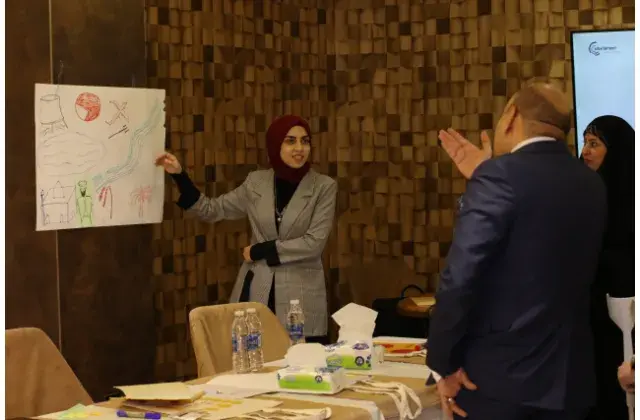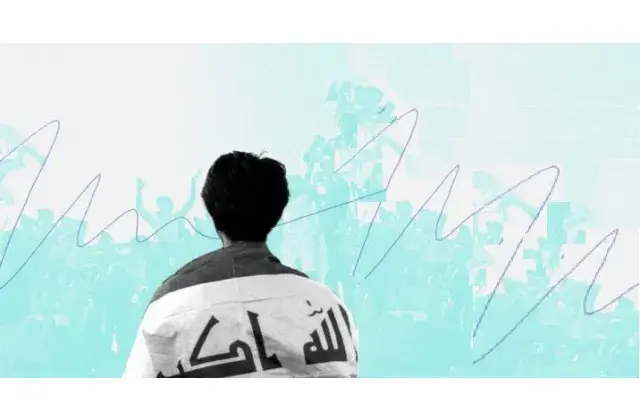Civic Education and Sustainability

1. Development of the term Sustainability
The term sustainability refers to using resources in a way that will not damage them or cause their diminish over time; in other words, to sustain them. One of the origins of the word comes from foresting: you should only chop as much wood as that will grow back over time. In recent times, the term was extended to an integrated approach, defining what is needed for human life as a whole.
The United Nations (UN) – of which Iraq is a founding member since 1948 – defined sustainability in 1987 as “meeting the needs of the present without compromising the ability of future generations to meet their own needs.” Ever since, sustainability is grouped into three pillars:
a. Ecological: preserving nature, ecosystems and resources.
b: Economic: efficient development for the common good.
c: Social: cooperative and just satisfaction of human needs.
This was specified in the UN’s Earth Summit 1992 in Rio de Janeiro where the action-plan Agenda 21 was developed. One of its major ideas was that every local government should adopt its own Agenda 21 to achieve sustainable development by 2000. Iraq ratified the Agenda 21 only in 2009, but since then it has become part of the further developments of the UN concerning sustainability.
Recently, Iraq has, amongst others, started an ‘Environment and Climate Change Policy Advisory Group’ as an informal platform to foster dialogue, collaboration and coordination for government, NGOs, business and science. Coordination is one of the key challenges in Iraq to develop strong policy frames in the field of ecological and economic sustainability.
2. Sustainability and Civic Education
In 2015, the UN developed the 2030 Agenda for Sustainable Development with its 17 Sustainable Development Goals (SDGs). Iraq ratified this Agenda in early 2016. The 17 SDGs specify a comprehensive understanding of sustainability in many areas, and have been used worldwide to make the urgency of change understandable. A common logo and symbols for each of the goals are important to transmit them to a wider public and provide a concrete orientation for responsibility in different areas of society. By now, they are used in advertising by big companies, in civil society and in formal and non-formal education world-wide.
SDG 4 shows the relevance of education and also Civic Education: “Ensure inclusive and equitable quality education and promote lifelong learning opportunities for all”.
More specifically, learners and teachers are addressed as follows:
“(...) 4.7 By 2030, ensure that all learners acquire the knowledge and skills needed to promote sustainable development, including, among others, through education for sustainable development and sustainable lifestyles, human rights, gender equality, promotion of a culture of peace and non-violence, global citizenship and appreciation of cultural diversity and of culture’s contribution to sustainable development”.
“(...) 4.c By 2030, substantially increase the supply of qualified teachers, including through international cooperation for teacher training in developing countries, especially least developed countries and small island developing States”.
A recent example is the ‘Strengthening the Participation and Representation of Iraqi women in Political and Electoral Processes’ by the UN in Iraq. This is an issue specifically relevant for Iraq in which women still have fewer opportunities to fulfill their human needs. Therefore, the initiative wants, amongst other things, to provide training on political processes to women already in politics, or aspiring to enter politics, in addition to urging political parties to promote women in leadership positions.
Mapping these goals and examples directly on Civic Education, we can see civic values like responsibility, trust, participation, interaction and equality. Thus, good education can be understood as an integral and very important contribution to nation building. More specifically, Civic Education can be seen as a laboratory for nation building in the classroom; indeed, it is at the core of what should happen in schools and society as a whole. For this, it needs teachers who share an attitude of responsibility, and interact with their students on equal eye’s level; in other words, they are the ones to be good examples of what sustainability could look like in education.
This is all the more important in times of crises. The International Association for the Evaluation of Educational Achievement (IEA) presented in 2023 its third International Civic and Citizenship Education Study (ICCS) against the background of crises like migration, war and pandemic times. One of the findings was that in these challenging times, Civic Education falls back on environmental engagement (which is of course important!), and less on classical (political) engagement in society (voting and engagement in institutions). It recommends strengthening Civic Education as a future-oriented approach to nation building especially in these times.
3. Consequences for Civic Education in Iraq:
The UN works with the Government of Iraq and other national partners through the UN Common Country Strategic Framework to address the challenges and opportunities of development in Iraq. Over 47 % of the support is invested into ending poverty, and over 27 % into building strong institutions for peace and justice. This reflects the current situation in Iraq, where basic human needs and the fight against corruption at all levels are still very important. Yet, given the overall importance of Civic Education for sustainable development, and in this sense also nation building, the fact that only 0,9 % of support is invested into Quality Education (SDG 4) shows that there is much room for improvement.
From the discussions above we can draw some conclusions concerning Civic Education and sustainability in Iraq. The following points do not mean that they do not exist in Iraq, but they should be kept in mind and strengthened when using Civic Education to contribute to a comprehensive Nation Building.
- Strengthen Civic Education especially in times of crises. As described above, it can be a stabilizing factor to keep, build and enhance sustainable and trustful relationships for nation building on the basis of civic identity.
- Pick up current topics like climate change, but focus on the overall value basis of Civic Education as important parts of sustainability.
- Develop and strengthen value-based training approaches and concepts which enhance interaction, dialogue and participation.
- Train teachers to see schools and classes as communities of interaction, and as laboratories of sustainable nation building.
- Design learning settings that are interactive and dialogue-oriented.
- Strengthen personal responsibility of teachers and learners as a model for nation building.
- Use civic action projects (service learning) in schools as they will most likely transfer back to family, friends and the community.
- Include encounters of different ethnic groups in civil society to achieve diverse and integrative nation building.
This article was written by Florian Wenzel and is licensed under CC BY-NC 4.0.





